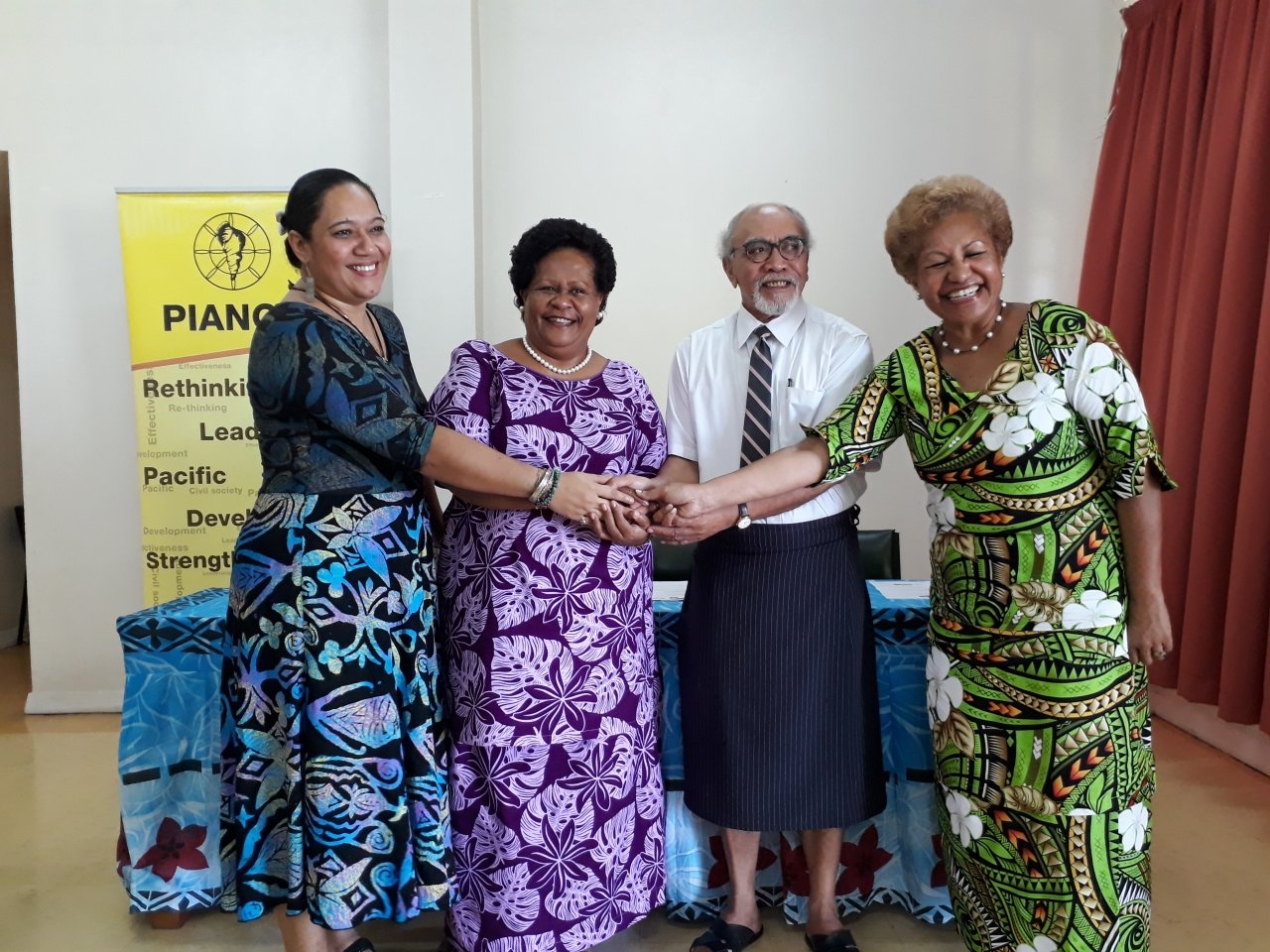By Ilaitia Turagabeci
Traditional wisdom holders in the Pacific converge in Fiji’s capital Suva next week in a bid to capture knowledge that’s fast disappearing in the islands.
The Inaugural Pacific Philosophy Conference on June 11-14 hopes to address this aspect of Pacific life and help bring revival in the way islanders cope with today’s social, economic, health and other associated problems and live their lives using the wisdom that our forefathers had.
The conference – a partnership between the Pacific Islands Association of Non-Governmental Organisations (PIANGO), Pacific Theological College, University of the South Pacific and Fiji National University – aims to collate these wisdom sharing for our next generations to capture and adapt.
According to the organisers, the event would give students who will attend a chance to learn from the wise in the region.
Speaking at the signing of a memorandum of understanding between the partners yesterday, PTC Associate Professor and head of Theology and Ethics, Reverend Dr Upolu Vaai said the Pacific was faced with development changes that were causing the evolution of our ways.
“This partnership came into being because of the common interest of these four institutions in the search for a new development narrative for the Pacific,” he said.
“One that decolonises education from the ground up, that considers the voices of the global views, the local communities, especially the future generation leadership, the young people, one that is able to reweave the ecological mat in response to the environmental threat that is unfolding before our eyes.
“It’s one that re-envisions our holistic spirituality and one that gives us courage to reconstruct our own local holistic paradigms and models for the sake of harmony of life.
Dr Vaai said the conference “is the first of its kind looking at our own Pacific relational philosophies that could function as a point of reference for relational ethical behavours and models to save the planet from ecological destruction”
In the attempt to change the tide of change, the four partners have invited key custodians of wisdom, recognised elders from around the region “who will bring with them the wealth and voices of local communities to enlighten us throughout a week of discussion and talanoa.”
Panelists and participants range from members of civil society communities, academics, church leaders, graduates and post graduate students from various institutions around Fiji, poets and artists, traditional navigators, members of various sectors as well as those who work with development in the region.
Among them is the former head of State of Samoa, Tui Atua Tupua Tamasese Efi, who will open the conference.
PIANGO executive director Emele Duituturaga said PIANGO was pleased to be part of an event that was part of a process that aims to bring change to the mindset of people
She said for the last six years, PIANGO had been operating under the theme – Rethinking Development, Reshaping the Pacific We want – and the conference was ideal in that it brought practitioners to the table.
“When we get to talk about reshaping, what we found ourselves asking is if we are having challenges with current development models, what is the alternative? This partnership is the part of our journey to envisage and articulate an alternative paradigm of life,” Duituturaga said.
“Pacific Philosophy is very important. Many of our members, community people, work on the ground, in villages. A lot of them are challenged with competing philosophies of life.
“This is an opportunity for practitioners and academics to come together in a talanoa fashion to not only talk about philosophy but how does that philosophy come alive for practitioners, how can philosophy of this Pacific talanoa add value to the work that our people are doing on the ground.
Duituturaga said PIANGO was also working closely with traditional owners of Suva who will be involved in the conference since they are part of PIANGO’s next generation leaders programme.
FNU’s Professor Unaisi Nabobo Baba said they acknowledged the sources of wisdom in the Pacific and looked forward to the impact these elders would make in the lives of people in the islands
Dr Frances C Koya-Vaka’uta of the USP’s Oceania Centre for Arts, Culture and Pacific Studies said such events gave people a deeper understanding and relevance to the studies offered at their institutions.
Ends
